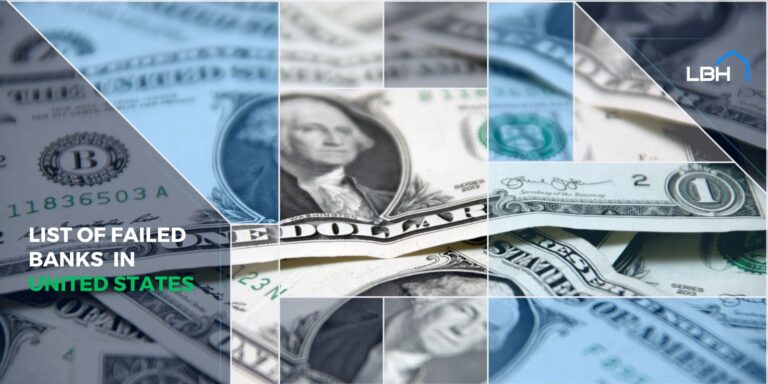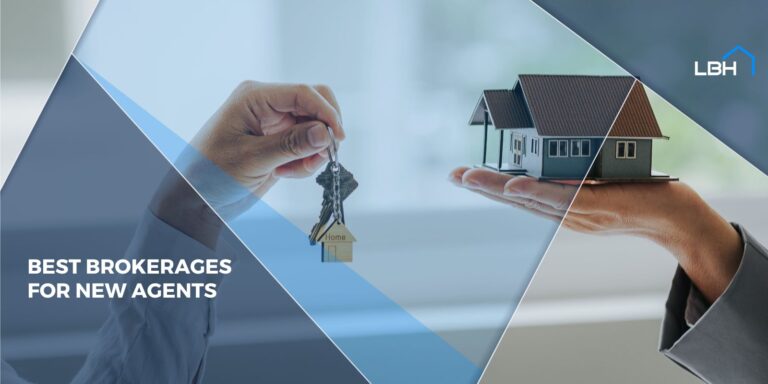Buying a house is a monumental life achievement. But with the current economic slowdown, it may seem out of reach for many. However, you can take that big step without the heavy burden of a down payment.
In this comprehensive guide, you’ll learn about the different ways to buy a house without a down payment. It will cover no down payment mortgages such as government-backed loans and other alternative low down payment mortgages. You will also understand their benefits, eligibility requirements, impact on your long-term financial goals, and associated risks.
A down payment is part of the total cost you pay upfront when you purchase a property. It is your initial investment in your home.
The conventional percentage for a down payment is about 20% of the home’s price without mortgage insurance. However, this is not a hard and fast rule. The minimum down payment requirement varies depending on the type of mortgage, the lender’s risk tolerance, and the borrower’s creditworthiness, usually measured through a credit score.
While a down payment can seem like a significant hurdle, it has three important benefits:
- Builds Equity
At the most basic level, a down payment builds equity in your home right off the bat. Equity refers to the portion of the house you own. It is the difference between the home’s outstanding balance on your mortgage and its market value. The more the down payment, the greater your equity. The more the down payment, the greater your equity. With a zero down mortgage, your initial equity will be zero.
- Lowers Monthly Payments
A down payment also reduces your monthly mortgage payments. The logic is simple. By making a significant down payment, you reduce the loan amount and, consequently, the amount you must pay back each month.
- Can Also Help With Loan Approval
A down payment can also enhance your chances of obtaining a mortgage in the first place. Mortgage lenders are typically more comfortable offering loans to individuals who can make a substantial down payment.
A larger down payment reduces the lender’s risk. If you default on the loan, the mortgage lender will be better positioned to recoup their losses.
Types of No Down Payment Mortgage Programs
Several options are available for those looking to buy a home with a minimum down payment. Here are some of the most popular:
Government-Backed Loans
There are various types of government-backed loans for first-time homebuyers. Each loan has its own rules and advantages. Generally, these loans offer good terms, such as a minimum or zero down payment amount, making it easier for qualified individuals to own a home. The following are the three main types of government-backed loans:
VA Loans
VA loans are specially designed for veterans, active-duty service members, and their surviving spouses. The U.S. Department of Veterans Affairs backs these loans.
- Eligibility Requirements
According to VA loan eligibility rules, you have to fall into one of the above categories. You must have served for at least 90 continuous days without a break if you are an active service member.
For veterans, the threshold of active-duty service depends on the time of service. National Guard and Reserve members are also subject to different VA loan eligibility requirements based on their service time.
You may still be eligible for a VA loan if you don’t meet the minimum service requirements but were discharged due to any of the following reasons:
- Hardship
- Certain medical conditions
- Reduction in the number of troops or staff
- At the government’s convenience but must have served at least 20 months of a two-year enlistment
- Early out but served at least 21 months of a two-year enlistment
- A service-related disability
A stable income and a good credit score are also crucial. These two factors will help demonstrate your reliability as a borrower.
- Benefits of VA Loans
One of the most appealing benefits of VA loans is that they are no down payment mortgages. However, the sales price must equal or exceed the appraised value. Keep in mind that you will still need to pay closing costs, such as loan origination fees, and the VA funding fee. The funding fee is a one-time fee that is charged to borrowers to help sustain the VA loan program. Seller concessions may also be an option to cover closing costs.
VA loans also tend to carry competitive interest rates and favorable terms, making it easier for veterans to become homeowners. Additionally, since they are government-backed loans, mortgage lenders approve them more often.
A VA loan does not require insurance, which protects lenders in case a homeowner fails to make repayments. Not having this additional cost brings in significant savings.
USDA Loans
USDA loans help low income borrowers purchase homes in rural areas. This loan type has the backing of the U.S. Department of Agriculture.
- Eligibility Requirements
First on the list of eligibility criteria is that the home you plan to purchase must be in a designated rural area. The USDA has a criteria for what counts as rural. Borrowers can use the USDA’s map to determine if a home is in a qualified area.
USDA loans also require applicants to meet certain income requirements. The annual household income must be less than 115% of the median family income. The borrower must also agree to use the home as their primary residence. A good credit score is also required.
- Benefits of USDA Loans
Like VA loans, USDA loans are no down payment mortgages. It means you can finance 100% of the home’s purchase price.
Another significant advantage of USDA loans is the absence of insurance, a requirement for home loans where the down payment is below 20% of the purchase price.
USDA loans also often have lower interest rates than conventional loans. The absence of PMI and lower interest rates mean substantial savings over the life of the loan.
It’s worth noting that every lending situation is unique. Your interest rate will depend on several factors, such as your credit score and prevailing market conditions.
Federal Housing Administration (FHA) Loans
FHA loans are a popular choice among first-time homebuyers and those with less-than-perfect credit score or limited savings. Contrary to some misconceptions, FHA loans do not offer a no-down payment solution. Instead, they require a minimum down payment of 3.5% of the home’s purchase price, making them an accessible option for many prospective homeowners.
The key feature of FHA loans is that they are backed and insured by the Federal Housing Administration, which is part of the U.S. Department of Housing and Urban Development. This means that if a borrower defaults on their loan, the FHA will step in to cover the lender’s losses.
FHA loans are particularly attractive to borrowers who might not qualify for conventional loans due to a lower credit score or a higher debt-to-income ratio.
- Eligibility Requirements
You need a credit score of 580 for a 3.5% down payment. However, a credit score of 500 will require a 10% down payment. The borrower must also prove sufficient income to repay the loan.
Your debt-to-income ratio cannot exceed 43% of your monthly income. Only primary residences are eligible for these loans; investment properties are excluded. You must also occupy the home in the first 60 days of ownership.
You’ll need to demonstrate that your income is sufficient. You will likely need to provide documentation of two years of employment history.
An FHA-approved appraiser must appraise the house you want to buy. In 2023, the highest approved loan for the purchase of a single-family home is $472,030 in most counties. In expensive areas, you can borrow up to $1,089,300.
- Benefits of FHA Loans
An FHA loan is a low down payment mortgage for applicants with a good credit score. They also offer lower interest rates compared to conventional loans. This implies less interest accrued over the life of the loan, hence lower monthly payments. These loans can be used in conjunction with a down payment assistance program.
Credit score requirements are usually lower for people who can pay a larger down payment. Applicants with financial issues such as bankruptcies in their history can also qualify. In addition, FHA loans can cover closing costs. But you’ll have to insure these loans.
Alternative Options to No Down Payment Mortgages
While government-backed loans offer numerous advantages, it’s essential to consider all available low down payment options when planning to buy a home. Here’s a closer look at a few alternatives:
Down Payment Assistance Programs
State and local governments and credit unions also offer programs to help homebuyers with limited funds for down payment. Nonprofit organizations also provide grants for down payment assistance.
Some of these programs allow borrowers to use the funds for closing costs and other related expenses. However, you will have to meet some conditions. These include income limits and qualifying as a first-time homebuyer.
These mortgage programs can come in many forms. Grants are typically awards that don’t have to be repaid. Deferred-payment loans, however, require repayment when the home is sold or refinanced. These loans are usually enough to cover the down payment.
Low-interest loans and matched savings programs are other down payment assistance programs.
Cash Gifts
Cash gifts are typically from family members. They can be an alternative to cover the cost of a down payment. There are no specific restrictions on using the money, making it a flexible option for prospective homeowners.
Low Down Payment Mortgage
Down payment requirements for a conventional mortgage loan typically start at 5%. However, some mortgage lenders like Freddie Mac, Fannie Mae, and Rocket Mortgage offer minimum down payment options. They allow borrowers to put down as little as 3% if they meet the minimum credit score requirements. However, these low down payment options may attract additional fees or higher interest rates.
Saving Up for Down Payment
This method complements conventional loans with high down payment requirements. It requires time, discipline, and patience. However, it’s the safest. This is because it provides a sense of financial stability. Another benefit of saving up is that you don’t need to worry about special rules or filling out forms.
The Impact of Buying a House With No Money Down
Buying a house is a significant milestone in one’s life, and it can be achieved even without a 20% down payment. However, it’s important to understand the implications of this decision on your financial future.
A down payment of less than 20% will require mortgage insurance, which safeguards the mortgage lender if you default on the loan. The type of mortgage insurance you’ll pay will depend on the kind of loan you take.
Private Mortgage Insurance
For conventional loans, you’ll pay private mortgage insurance (PMI). This insurance enables you to become a homeowner without needing a 20% down payment, thereby helping you enter the housing market quickly. One of the benefits of PMI is that it’s not a permanent cost. Once your mortgage balance falls to 80% of your home’s value, you can request your mortgage lender to cancel the insurance.
Mortgage Insurance Premiums
On the other hand, an FHA loan comes with its own version of insurance, known as mortgage insurance premiums (MIP). Unlike PMI, MIP is required for the entire lifetime of an FHA loan, regardless of how much equity you’ve built in your home.
While the prospect of paying PMI or MIP might seem daunting, remember that it allows you to start building equity in your home sooner than if you waited to save up a full 20% down payment. Also, keep in mind that these costs may not necessarily hinder your long-term financial goals. It all depends on your individual circumstances, including your income, expenses, and future financial plans.
However, there are some drawbacks to consider. Without a down payment, your monthly mortgage payments will be higher, which could limit your ability to save for other financial goals. You’ll also start with little to no equity in your home, putting you at risk if property values decline.
Ultimately, the decision to buy a home with no down payment is a personal one that should be made after careful consideration of your financial situation and long-term goals. Even if you can’t afford a 20% down payment, homeownership is still within reach. It’s all about understanding the pros and cons and making an informed decision that aligns with your financial aspirations.
The Importance of Getting Pre-Approved for a Mortgage Before You Start Shopping for a Home
Before purchasing a home, getting pre-approved for a loan is essential. A pre-approval is a lender’s commitment to lend you a specified amount. They decide this after looking at your financial situation, including your income, debts, credit score, and assets.
Securing pre-approval before home shopping comes with multiple benefits. These include the following:
- Sets Clear Financial Boundaries
The most obvious is it helps set a realistic budget for your house hunt. It helps narrow your search, saving you time by focusing only on homes within your price range.
- Can Help You Avoid Overpayment
It will enable you to know what you can afford. That way, you’ll be less likely to be swayed by high-pressure sales tactics. You won’t also be enticed to stretch your budget for a home out of your price range.
- Enhances Your Negotiating Power
Another advantage of getting pre-approved is that it strengthens your negotiation position. Sellers often prefer buyers who have pre-approvals since it reduces the chances of the sale falling through due to financing issues.
- Ensures a Smooth Buying Process
Furthermore, pre-approval makes the entire home-buying process more efficient. It speeds up the mortgage underwriting since much of the financial vetting is complete. This means you can close on your new home faster.
Getting pre-approved can also alert you to potential issues with your credit score. The process includes a thorough review of your credit report. If errors are hindering your chances of getting a mortgage, you’ll have the opportunity to correct them beforehand rather than doing so in the middle of a home purchase.
The Hidden Costs of Buying a Home
The down payment is just the start when you’re looking to buy a house. Other costs may surprise you and add to the total home cost. They include the following:
- Closing Costs
Closing costs are the additional fees beyond the purchase price that you’ll need to pay at the end of the transaction. On average, you should anticipate these costs to total anywhere from 3% to 6% of your loan amount. These fees cover attorney, appraisal, title insurance, and loan origination fees.
- Homeowners Insurance
This insurance covers potential damages to your home. Your mortgage lender will likely need it to protect their investment. The cost will depend on factors like your home’s value, location, and deductible amount. The average cost of home insurance in the U.S. is $1,428 a year. This covers a home worth $250,000.
- Property Taxes
These taxes are typically based on the assessed value of the property. They also vary depending on your jurisdiction.
In addition, remember to factor in other hidden costs, such as maintenance and repairs, utilities, and homeowner association fees, if applicable. This will provide a more comprehensive view of the financial commitment you’re about to make.
The key to a smooth home-buying experience is preparation. Understanding all these costs upfront will help you create a realistic budget, reducing the chances of any unpleasant surprises.
Key Takeaways
Buying a home does not always mean coming up with a substantial down payment. There are zero down mortgages and other programs designed to help first-time homebuyers take the plunge into homeownership with minimum down payment. You should consider the various types of these programs, their pros, cons, and eligibility. Plus, be sure to budget for additional costs and all hidden fees.
Generally, the pros of buying a house with no down payment are immediate home ownership and, in some cases, lower interest rates. The cons include the extra mortgage insurance costs, a higher monthly payment, and less home equity.
The best option for you will depend on your circumstances. Consider your monthly budget, your credit score, and eligibility. Also, speak with a financial advisor or mortgage lender to understand all the implications to make an informed decision.













